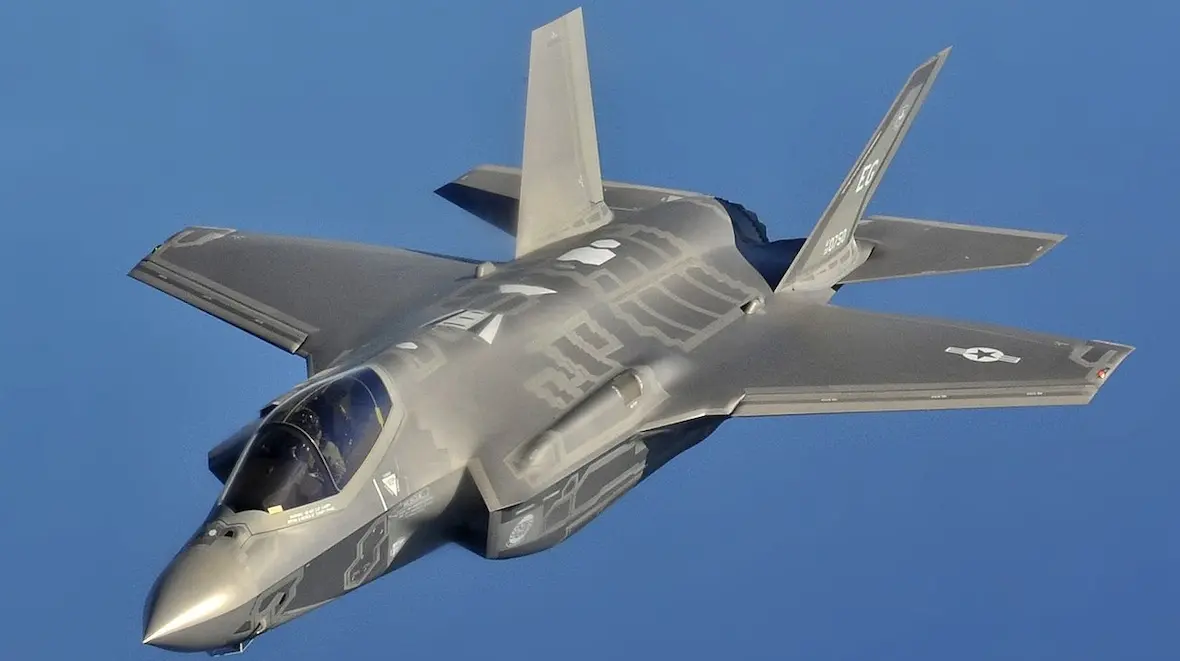
The unraveling of the F-35 deals is more than a policy failure, it’s a strategic crisis.
F-35 Fallout Begins – In a stunning reversal of U.S. defense diplomacy, President Donald Trump’s aggressive tariff policies have triggered a cascade of F-35 cancellations from key allies, Spain, Switzerland, and India, each pulling out of multi-billion-dollar deals to purchase the Lockheed Martin F-35 fighter jet. Once hailed as the crown jewel of American military exports, the F-35 program is now reeling from the political and economic backlash of Trump’s trade war.
Table of Contents
Spain, which had earmarked €6.25 billion for new fighter jets, has officially shelved its plans to acquire the F-35, opting instead to expand its Eurofighter Typhoon fleet and invest in the Future Combat Air System (FCAS). The Spanish Defense Ministry confirmed that 25 new jets will arrive between 2026 and 2030, redirecting €10.5 billion in defense spending toward European manufacturers.
Swiss lawmakers, meanwhile, are pushing to cancel their $9.1 billion order for 36 F-35s after Trump imposed a crushing 39% tariff on Swiss exports including luxury watches and coffee capsules. The backlash has united political factions across Switzerland, with calls for a national referendum and accusations that the U.S. is weaponizing trade.
India, too, has distanced itself from the F-35 program, citing high tariffs on Indian goods and a strategic pivot toward indigenous defense development. With the Tejas Mk1A and Mk2 fighters gaining traction, New Delhi has made it clear: American jets are no longer the default choice.
Tariffs and Tensions: Trump’s Gamble Goes Nuclear
Trump’s tariff-first strategy was designed to pressure allies into economic submission. Instead, it’s detonated a diplomatic minefield. His demand that NATO countries raise defense spending to 5% of GDP by 2035, more than double the current benchmark, was met with outrage. Spanish Prime Minister Pedro Sánchez called the proposal “unreasonable,” adding, “Only Europe will know how to protect Europe”.
This sentiment reflects a growing unease among U.S. allies about Washington’s influence over their defense systems. Trump’s muscle-flexing has alienated partners who once relied on American protection. Now, they’re turning inward, investing in European alternatives and questioning the reliability of U.S. leadership.
The tariffs have also sparked domestic unrest. American consumers are feeling the pinch of higher prices, while defense firms like Lockheed Martin face shrinking order books. The Pentagon itself has scaled back F-35 purchases for 2026, diverting funds to rival programs.
In Switzerland, Green Party leader Balthasar Glättli summed up the mood: “A country that throws rocks at us in trade shouldn’t get a present.” Even center-right lawmakers have joined the chorus, citing soaring costs and political risks.
India’s Strategic Shift: From Buyer to Builder
India’s decision to stay away from the F-35 program is more than a reaction—it’s a declaration of independence. With Trump’s tariffs straining U.S.-India trade relations, New Delhi has doubled down on its indigenous fighter programs. The Tejas Mk1A is already in production, and the Tejas Mk2 promises to be a formidable addition to India’s air force.
India’s defense ministry has also explored partnerships with France and Russia, signaling a broader diversification of its military procurement strategy. The message is clear: India will not be bullied into buying American.
This shift has implications beyond defense. It reflects a broader trend of de-dollarization and strategic autonomy. As global powers recalibrate their alliances, the U.S. risks losing its grip not just on arms sales, but on influence.
Trump’s tariffs may have been aimed at protecting American jobs, but they’ve ended up pushing allies away and empowering competitors. In India’s case, the fallout has accelerated a homegrown defense revolution.
Economic Shockwaves: Billions Lost, Trust Broken
The financial toll of these cancellations is staggering. Spain’s pivot alone redirects over €10 billion away from U.S. defense firms. Switzerland’s wavering threatens a $9.1 billion deal. India’s disengagement could cost billions more in potential future contracts.
Lockheed Martin, the primary manufacturer of the F-35, is facing mounting pressure. With fewer international orders and reduced Pentagon demand, the company’s long-term projections are being revised downward. Analysts warn that the F-35 program could lose up to $25 billion in global sales if current trends continue.
Beyond the numbers, the reputational damage is severe. The U.S. is no longer seen as a stable partner. Allies are questioning whether American defense deals come with political strings and whether those strings are worth the cost.
Trump’s tariff war was meant to assert dominance. Instead, it’s exposed vulnerability. The F-35, once a symbol of American military supremacy, is now a cautionary tale of how economic aggression can backfire.
F-35 Fallout Begins: Can America Rebuild Trust?
The unraveling of the F-35 deals is more than a policy failure, it’s a strategic crisis. If the U.S. wants to reclaim its position as a trusted defense partner, it must rethink its approach. Tariffs may win short-term battles, but they lose long-term allies.
Diplomacy, consistency, and respect for sovereignty must return to the forefront. Otherwise, America risks becoming a supplier without buyers and a leader without followers.
India’s Strategic Rebuff: Declining the F-35 Deal in a Shifting Global Chessboard